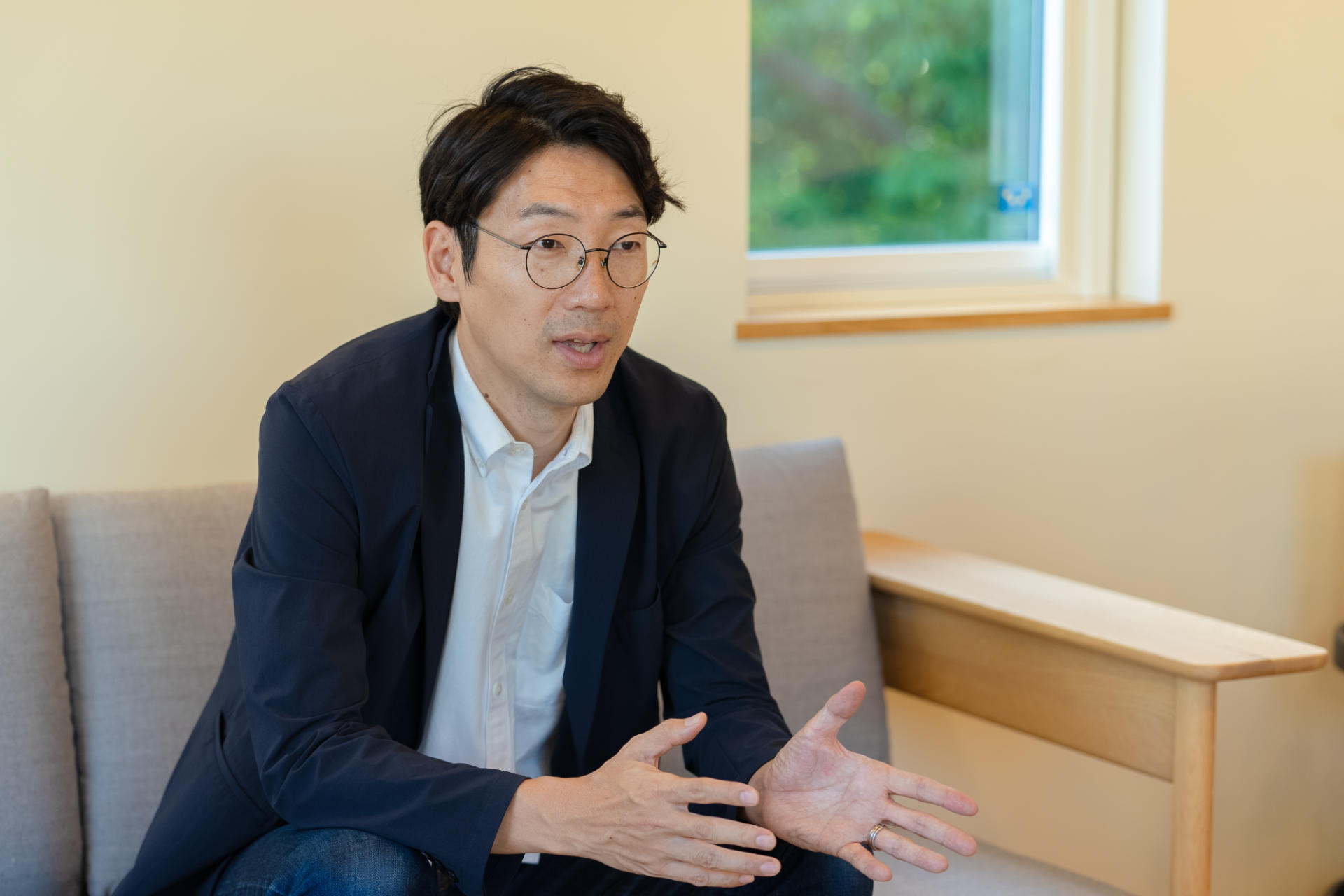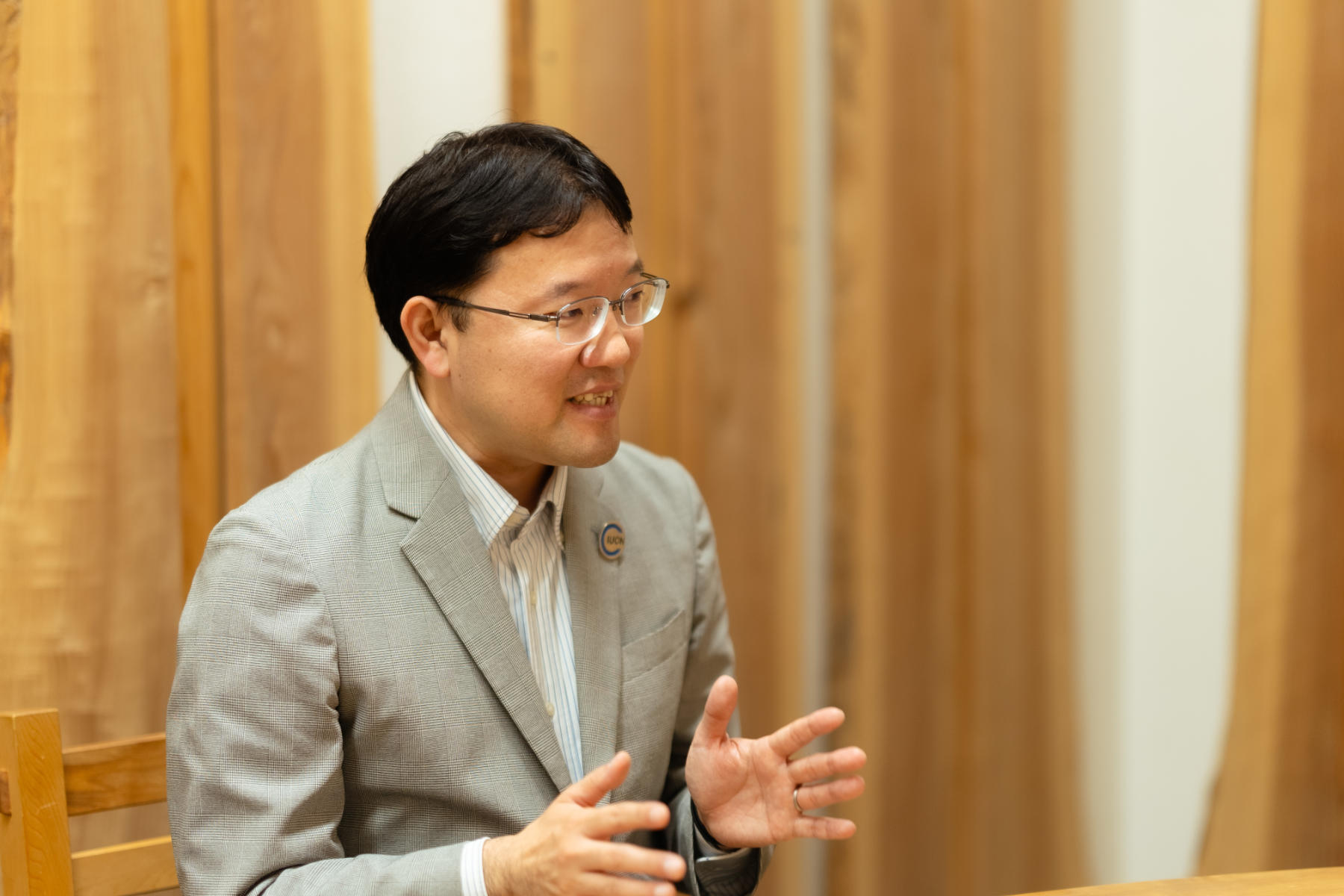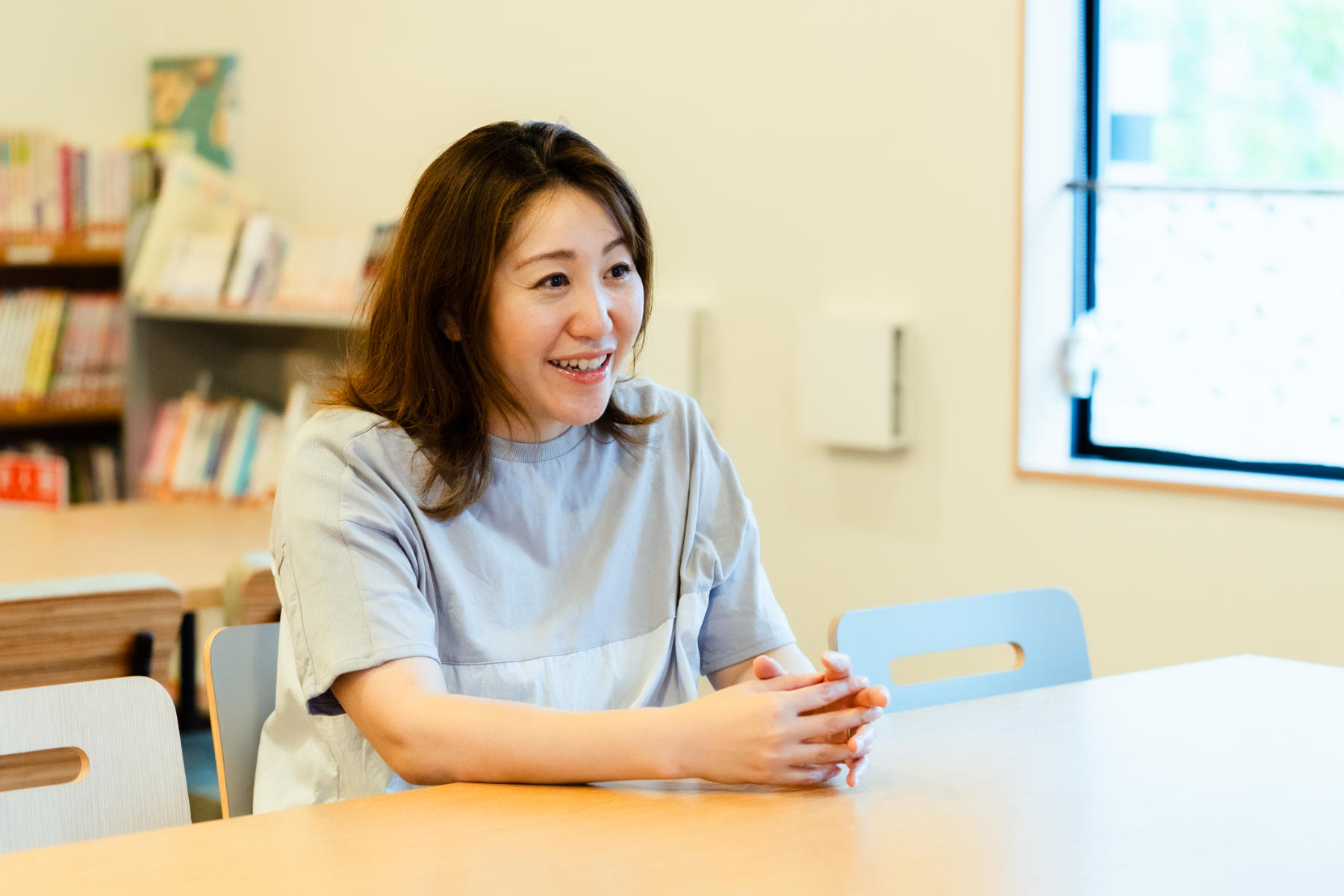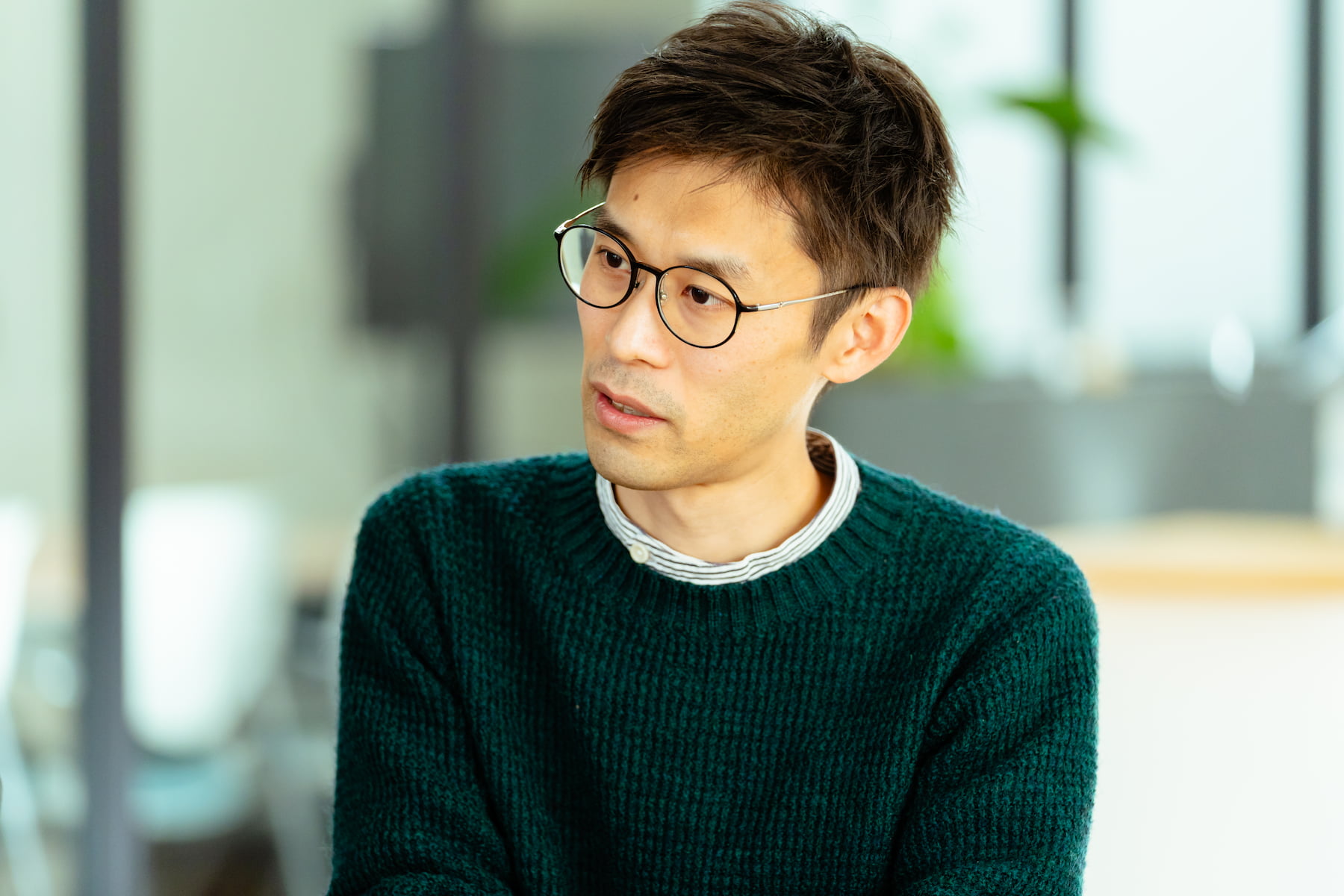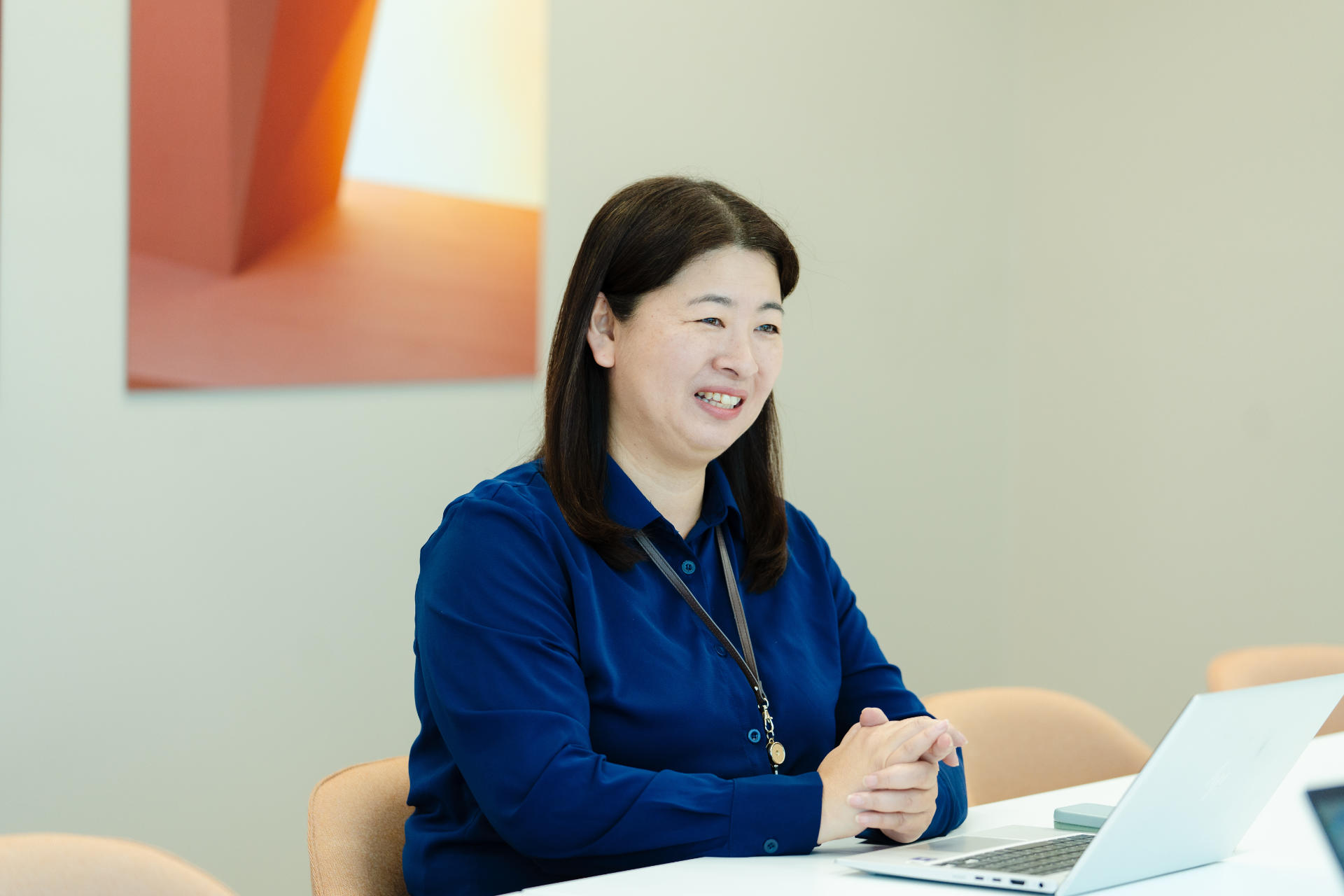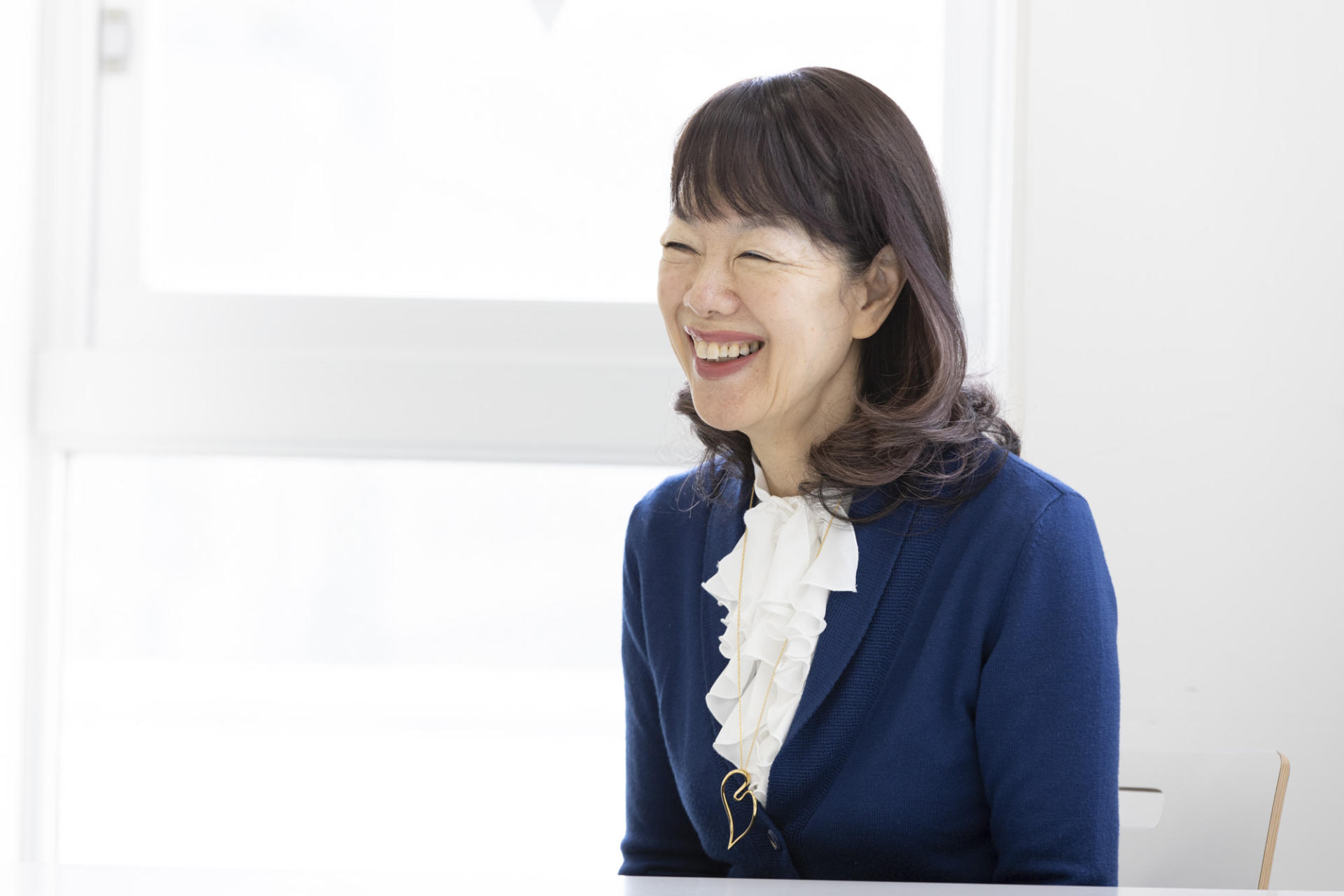CASE 22
Tohokushinsha Film Corporation
(December 2019 – March 2020)
Supporting opinion polls in order to increase awareness for IE [pronounced “ee-ay,” meaning “home” in Japanese]-men, an online media publication for fathers. Highlighting a new generation of father figures and Japanese social issues
Hitoshizuku has been involved with independent projects and logistical support for organizations related to children and families. These accomplishments led to a request from Tohokushinsha Film Corporation, a video production company, to support an opinion poll as part of a larger media awareness strategy for their online media publication for fathers, IE-men. With the goal of increasing the value of IE-men and supporting sustainable business, we looked back over our efforts with Ms. Haruka Shirei of the editorial department, who said the experience gave her “a lot to think about in terms of media’s existential significance.”
The number of dual-income households is increasing, but there isn’t much information to address a father’s concerns. I want people to know that there’s a media service out there providing support for fathers.
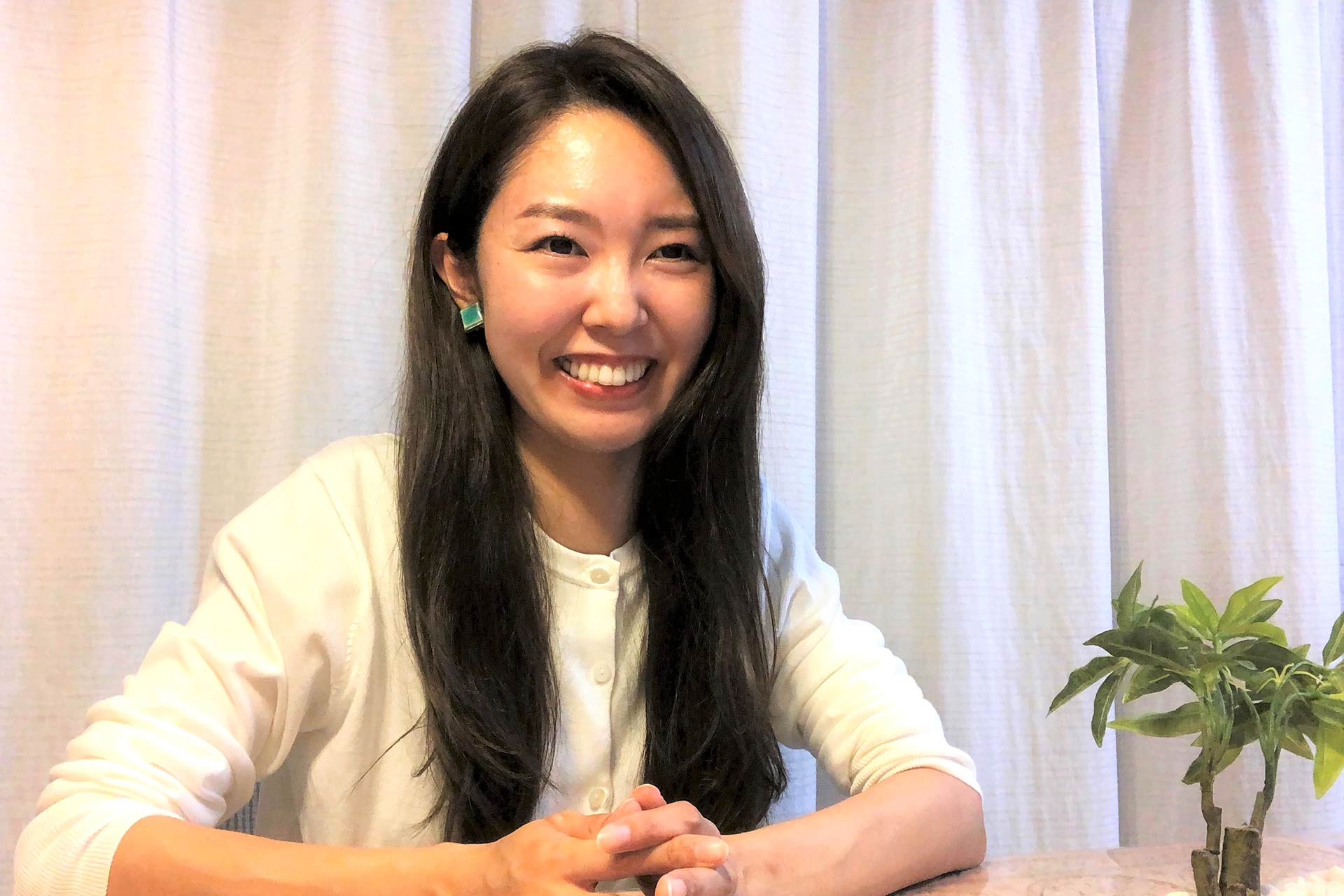
Ms. Haruka Shirei, Tohokushinsha Film Corporation
Hiroshi Kokubo, Hitoshizuku supervisor (Kokubo):
Our company was given the opportunity to provide logistical support for Tohokushinsha Film Corporation’s online media publication IE-men. Could you tell us again about this online publication?
Ms. Haruka Shirei, Tohokushinsha Film Corporation (Ms. Shirei):
IE-men is based on the concept of “family happiness starts with fathers.” It was founded in 2017 as an online media publication to support fathers, with household chores as the starting focus.
Nowadays we’re in the “100-year life” era, and people’s ways of living, working, and even family structures are diversifying. We created IE-men so that males, as husbands, as fathers, as independent men, could find opportunities that enable them to be more content in their daily lives, both now and in the future. We provide daily information from a male viewpoint on everything from ways to enjoy household chores and child-raising to couple and family communication.
Kokubo:
What was it that led you to focus your media efforts on fathers?
Ms. Shirei:
Tohokushinsha Film Corporation is a video entertainment company whose business has developed to include a diverse range of services, including movie and commercial production, and satellite broadcasting. In my case, most of my work came from orders I received, so even though I have the tools to create and communicate content from scratch, I had little actual experience of doing so.
Therefore the company decided to develop a new business, and a team was formed a few years ago with the goal of assembling the right human resources and know-how. During that time there were a lot of discussions which led to the decision to start a business that would help people in need by addressing the social issues they face.
At that point there was already a steady increase in dual-income households, with the difference in the number of dual income households at approximately 12 million nearly double the number of households with full-time housewives at approximately 6 million. This meant things like the balance between work and household chores, and the low rate of male employees taking childcare leave was becoming a social issue.
Despite this situation, I noticed a lack of support for addressing fathers’ concerns, even though there was a wealth of information and services geared toward mothers. That was when I decided to focus on supporting fathers and founded IE-men.
Kokubo:
As the father of 2 children myself, I get a lot of useful information from IE-men. As you say, it seems that most media is oriented towards mothers with a lack of focus on fathers, so I think it’s wonderful that you’re highlighting the father’s viewpoint. Were there any issues you became aware of once you started this media project?
Ms. Shirei:
Yes, because the amount of time both husbands and wives can spend on housework is limited in dual-income households, these tasks are often not accomplished to everyone’s satisfaction which can often be the cause of anxiety and arguments between couples.
That’s why IE-men has two objectives. The first is to provide comprehensive housework information about topics such as time-saving hacks and ways to effectively share household responsibilities so as to avoid potential sources of conflict between family members. The second is to provide information about having fun with one’s family, whether it’s in terms of housework, childcare, or otherwise, in order to create happier households.
However, in the case of online media, it can be easy to fall into a trap of one-way communication. To be honest, I noticed difficulty realizing our objectives and increasing user satisfaction through online media alone. That was why we began holding family-oriented events and creating community through Facebook groups.
Even so, IE-men is a new business, so it’s not widely known. If we don’t first increase awareness, people won’t read our articles or attend our events. That was the reason why we asked for Hitoshizuku’s help in providing logistical support to our efforts to increase awareness of our product.
Looking beyond public relations that come and go like fireworks, we were able to conduct a survey that highlighted attitudes towards fathers and families in contemporary society.
Kokubo:
We provided support for the survey release in terms of public relations strategies and practical tasks. What led you to reach out to Hitoshizuku?
Ms. Shirei:
Even though the phrase “supporting fathers” is a simple one, there are a lot of ways to go about this, and PR companies bring their own set of strengths and characteristics to this objective. For example, if we wanted to, I think it would be possible to have a celebrity serve as an IE-men ambassador and hold elaborate PR events.
However, I felt this sort of entertainment-heavy PR approach was wrong for IE-men, and I thought about ways to more specifically address the concerns that fathers confront.
From that point, learning about Hitoshizuku’s rich history of social good accomplishments as a public relations company and their knowledge about families and children led me to request their services.
Kokubo:
Our efforts over the years have stemmed from our desire to provide PR that closely aligns with people’s needs, so I’m very happy to hear you say that.
During the process of appealing to an awareness of solving social issues rather than mere entertainment, was there any point where you noticed the significance of working with us?
Ms. Shirei:
We had Hitoshizuku support us with two surveys, one which focused on attitudes towards fathers in Reiwa year one (2019), and the other focused on household YouTube viewing attitudes. It was good to have your input early on during the survey topic review and design stages.
In particular, the survey regarding attitudes towards fathers in Reiwa year one was something you proposed as a way to define the image of fathers at the start of a new era. Thanks to this, it was featured across numerous media platforms.
Months, even years after the survey was first released, we’ve been able to send out data to be used in various places and describe what fathers were like in Reiwa year one.
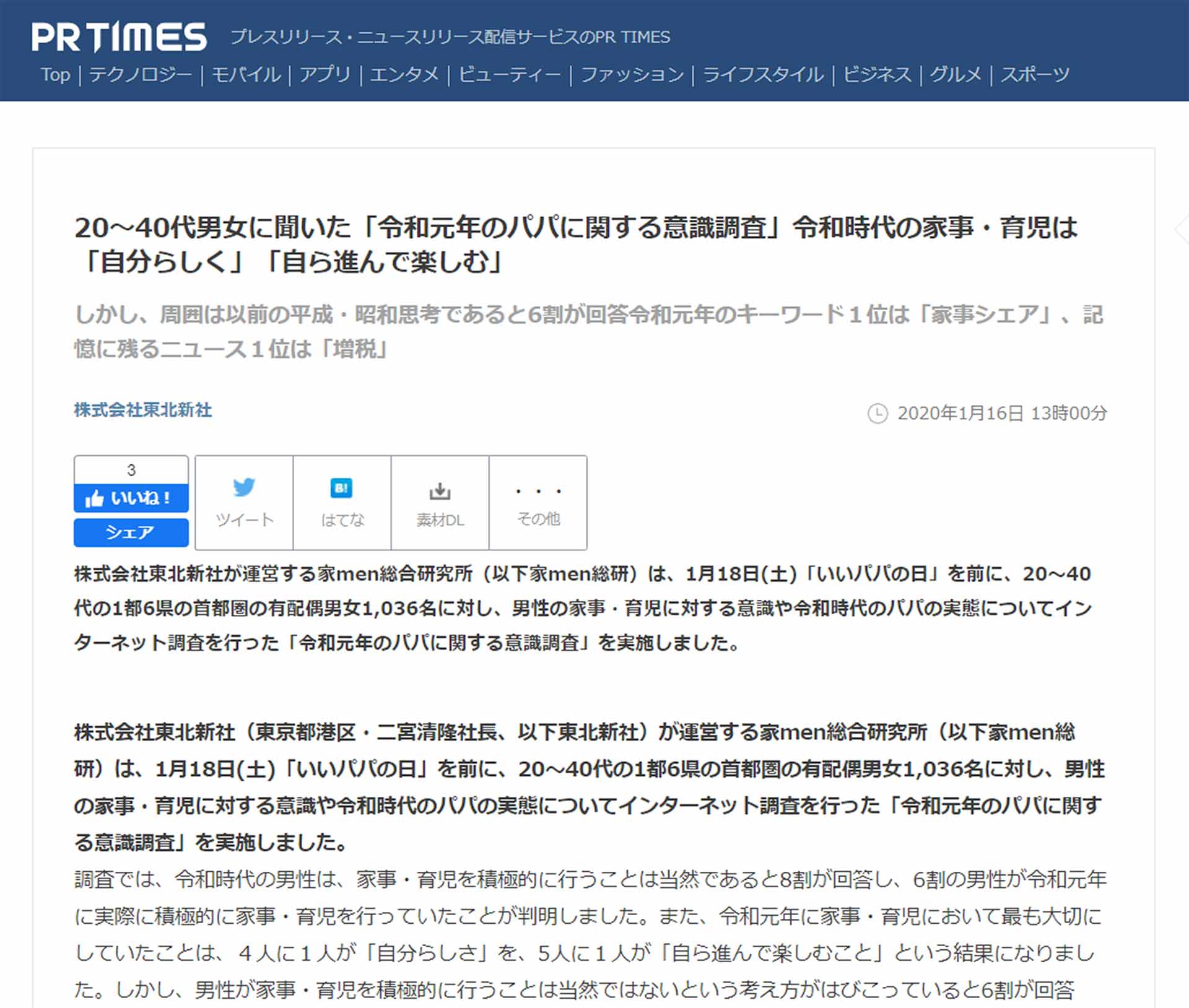
The press release detailing the results of the Reiwa Year One Attitudes Towards Fathers Survey, released before January 18th (Good Father’s Day).
Kokubo:
Initially I thought it would be best to create relationships with business partners in order to increase the value of IE-men as an online media source, rather than focus solely on publicity. What did you think of the results?
Ms. Shirei:
Whenever I meet a client or a company partner for the first time, I explain the media concept behind IE-men and what kind of activities we are involved in. Being able to present information that shows we proactively conducted an awareness survey and had it featured on various media platforms at this point allows the other party to be confident moving forward.
Additionally, survey data on fathers is hard to come by, so it’s valuable to companies who market to families. We’ve had people from these companies comment on how interesting the data is, so I feel like it’s useful for our business endeavors as well.
Kokubo:
Did you use the survey data for anything else?
Ms. Shirei:
I’ve personally had more opportunities to attend events and introduce IE-men, so the data is useful in those settings as well. I feel like it allows me to give both other media members as well as the general public a better understanding of the current situation of fathers in Japan.
Recently, whenever I speak with our outside partners, I often hear how impressed they are with IE-men’s projects, which makes me really happy.
Proposing “line strategies” and providing logistical support for sustainable business. Creating a “new normal” together.
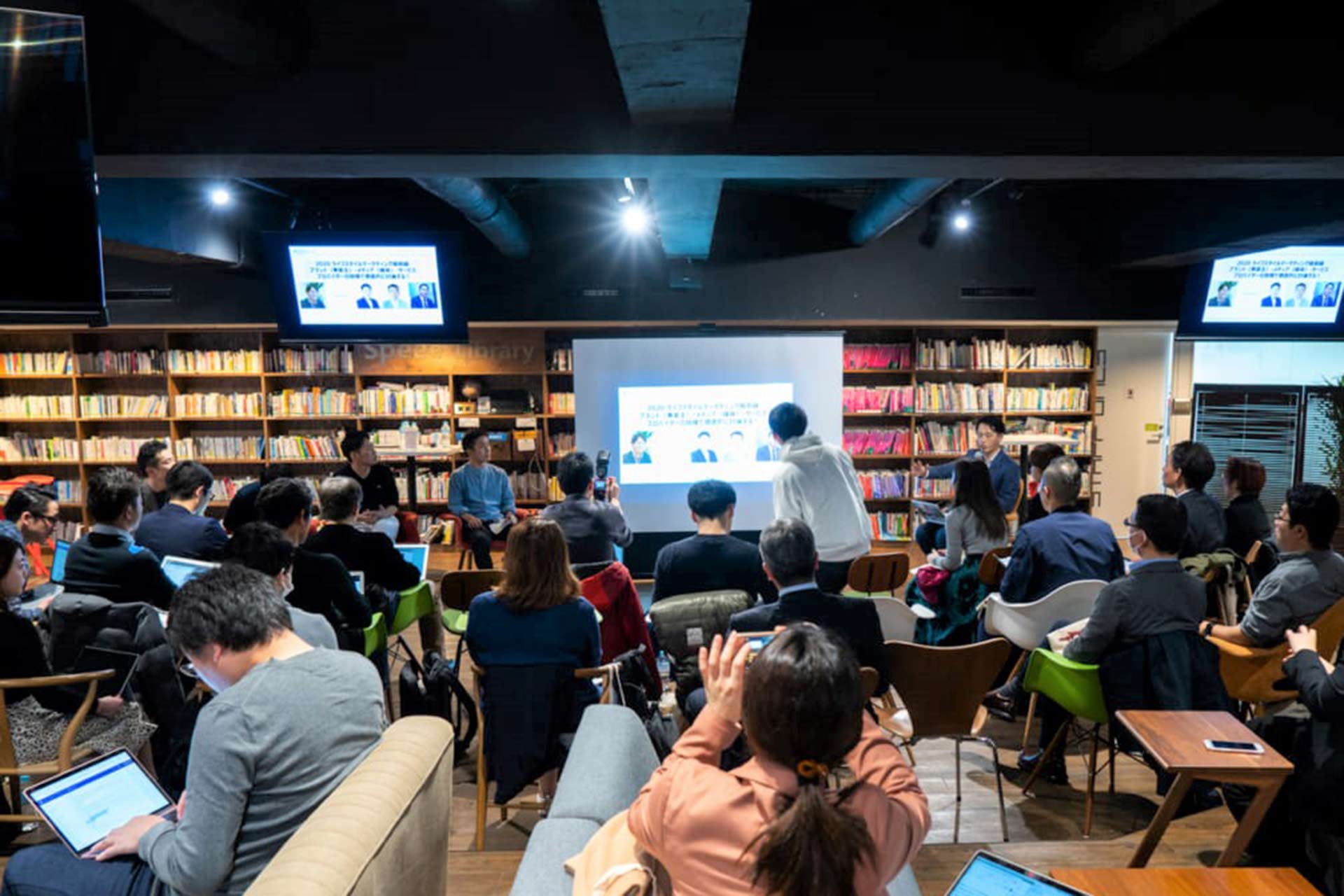
Holding an event on future lifestyle marketing considerations. Creating horizontal connections to others with the same goals.
Kokubo:
It’s good to hear that. How did you feel about our support in non-survey areas?
Ms. Shirei:
I think all of the projects proposed at our public relations strategy meeting were extremely fruitful.
Hitoshizuku has a good sense of current social issues, so we were able to get a lot of good ideas for how to address these issues.
The perspective you offered, for example regarding social good activities being one way of raising awareness for a father support service like IE-men, gave me a lot to think about in terms of media’s existential significance.
Kokubo:
Through my work with IE-men I’ve come to see the world from a father’s perspective, and have become more reflective on my own activities as a father. Being a part of this social group has enabled me to offer those kinds of perspectives.
Ms. Shirei:
I’m also grateful for the way you thought about “line strategies” instead of “point strategies.” It was encouraging to start with how many business opportunities a single strategy could potentially create, and to create proposals with an eye towards the next action even if it doesn’t translate to a direct increase in sales.
Kokubo:
I agree. Even with a one-off project, we still approach it with the idea of logistically supporting sustainable business for our partners.
By the way, was there anything you wish we had done differently?
Ms. Shirei:
This isn’t related to anything Hitoshizuku did, but I feel bad that our company’s budget and schedule didn’t allow for us to implement a lot of the proposals you provided.
Kokubo:
That’s something we’d love to take on next time.
Ms. Shirei:
I agree. The family and father business world is small, so it’s important to create horizontal relationships in order to support the fathers of Japan. We collaborated with SC Digital Media, operators of a community service for creators specializing in kids and families called Hapiton!, for our household YouTube viewing attitudes survey. We’d like to continue building relationships with people who share the same goals.
I think it’s going to be the responsibility of media platforms to provide information in order to change Japanese society to better accommodate fathers, as well as change the attitudes of fathers themselves.
In speaking with fathers, we often hear that there isn’t a support network for them to open up about issues they encounter when it comes to household chores, child rearing, and their relationship with their spouse. This is exactly why I think it would be great if we could work together with everyone in the industry to provide an IE-men community that would offer a place outside of home and work where fathers could feel free to express themselves openly and honestly.
Kokubo:
As a father myself, I’ve noticed that there aren’t many places where I can share my concerns. It would be reassuring to be able to consult with a group of people from similar situations.
Ms. Shirei:
The benefits provided by Japan’s childcare leave system is consistent with global standards, but the number of people who actually utilize it is overwhelmingly low at about 7%.
The reasons for this could be a lack of understanding from one’s boss, or a workplace which discourages taking leave. Society, including businesses, needs to change in order to increase this percentage. As members of the media, I think we feel a strong responsibility to continue highlighting these issues.
My hope is that there will eventually come a day when fathers across Japan will be able to proudly say, “I’m leaving early today to go pick up my child.”
Kokubo:
Let’s be confident in this vision of a new normal and work together to achieve it. We look forward to collaborating again in the future.
Some photos provided courtesy of Tohokushinsha Film Corporation
RECENT WORKS
| Name | Hitoshizuku Inc. |
| Address | 33 Nihonodori Naka-ku Yokohama Kanagawa 231-0021 JAPAN |
| Branch | Hamacho Odawara Kanagawa 250-0004 JAPAN |
| Phone | 81 045 900 8611 |
| info@hitoshizuku.co.jp |
| President | Hiroshi Kokubo |
| Established | March 2016 |
| Capital | 3,000,000yen |
| Business | Advertising & Public Relations Agency Planning & Produciton of Social Good Projects |
| Lawyer | Junna Tei / Yokohama First Law Office |
| Tax Advisor | Satoru Motokoide / Uniques Money Advisory |
| Labor and Social Security Attorney Office Work Innovation | |

